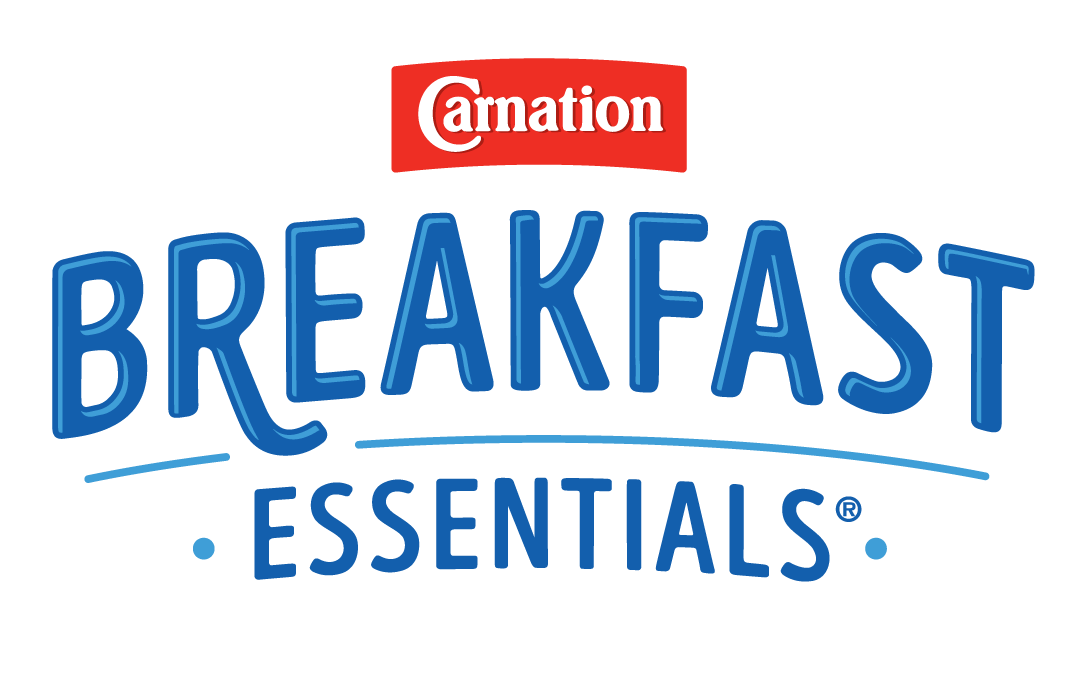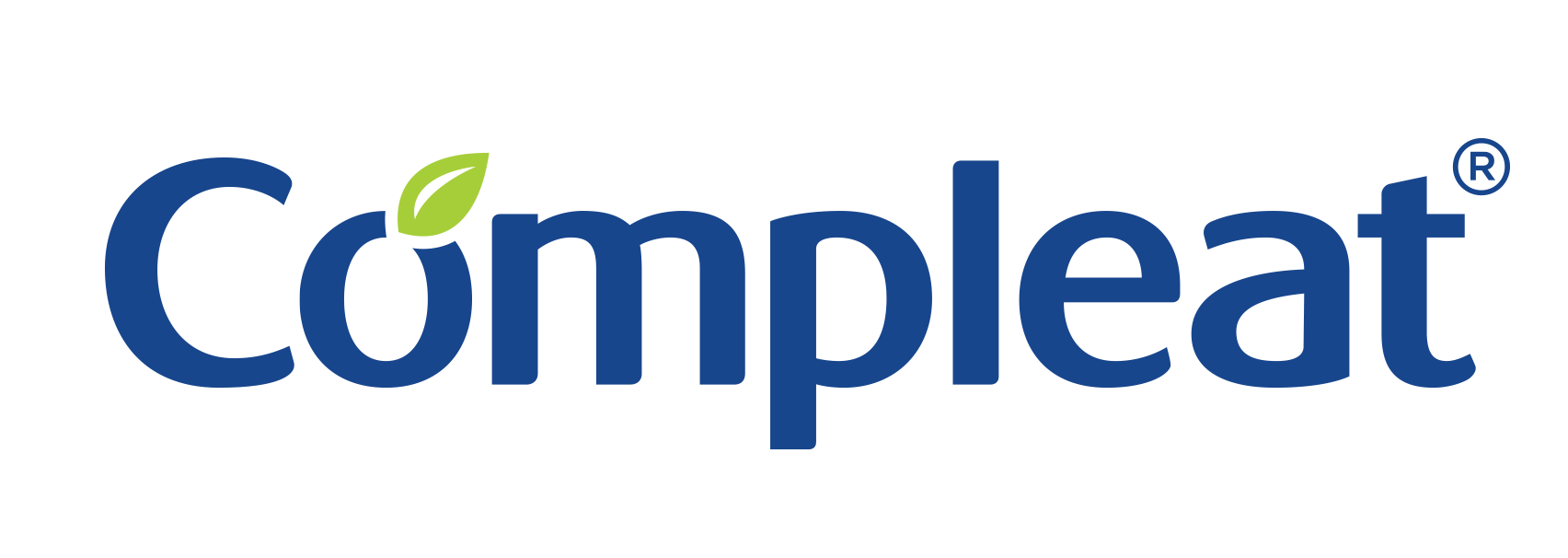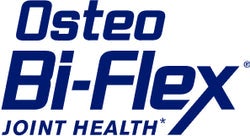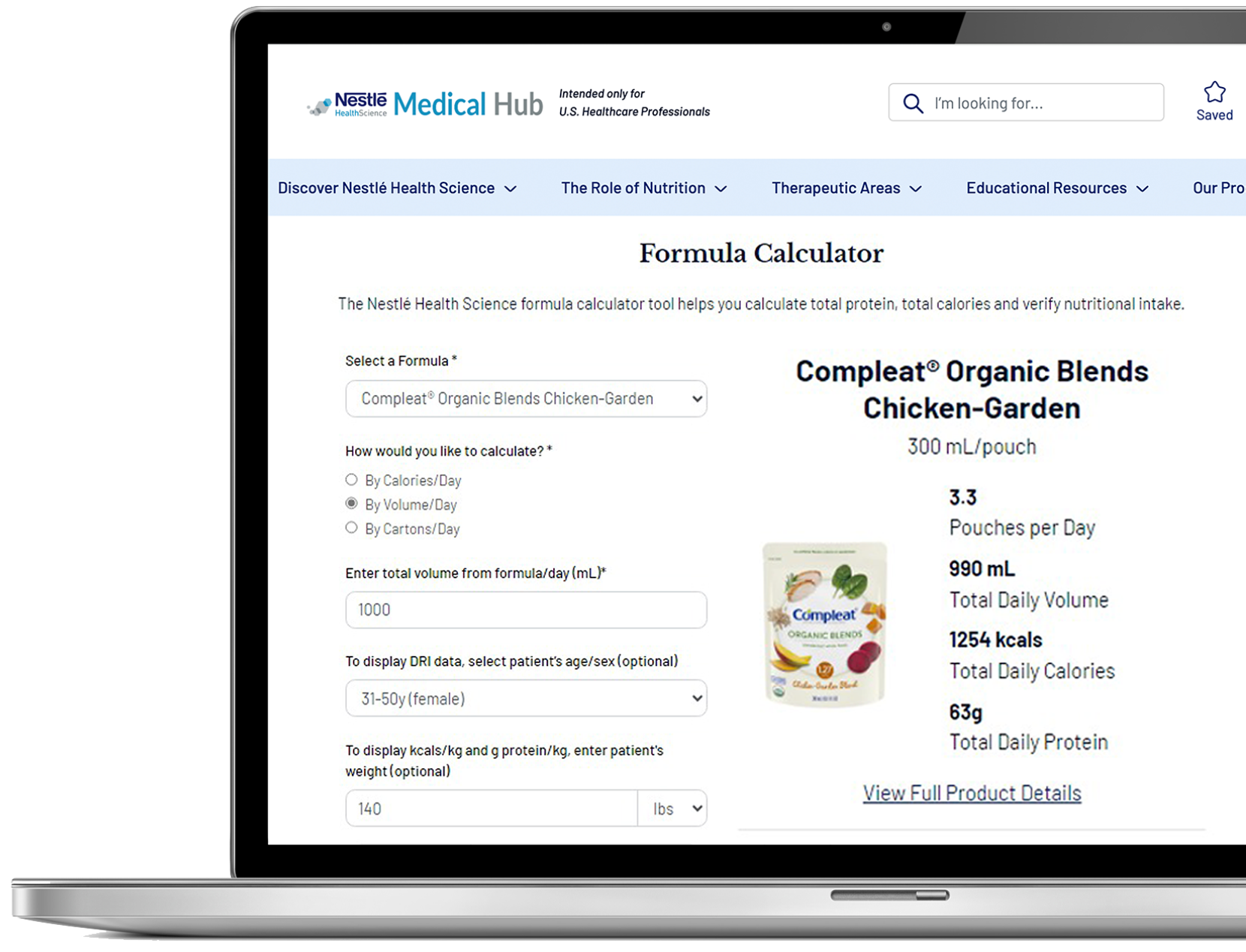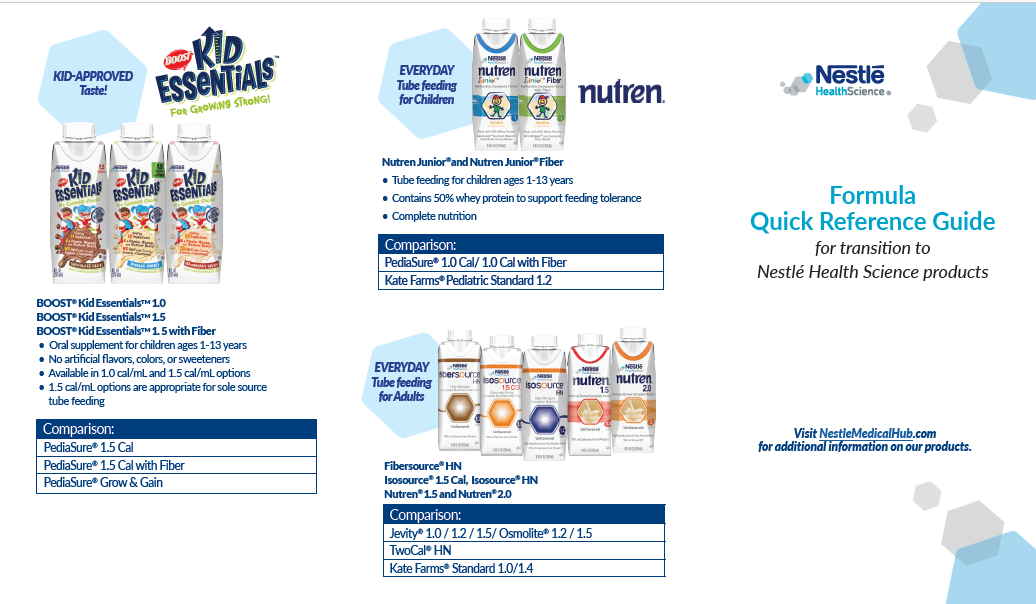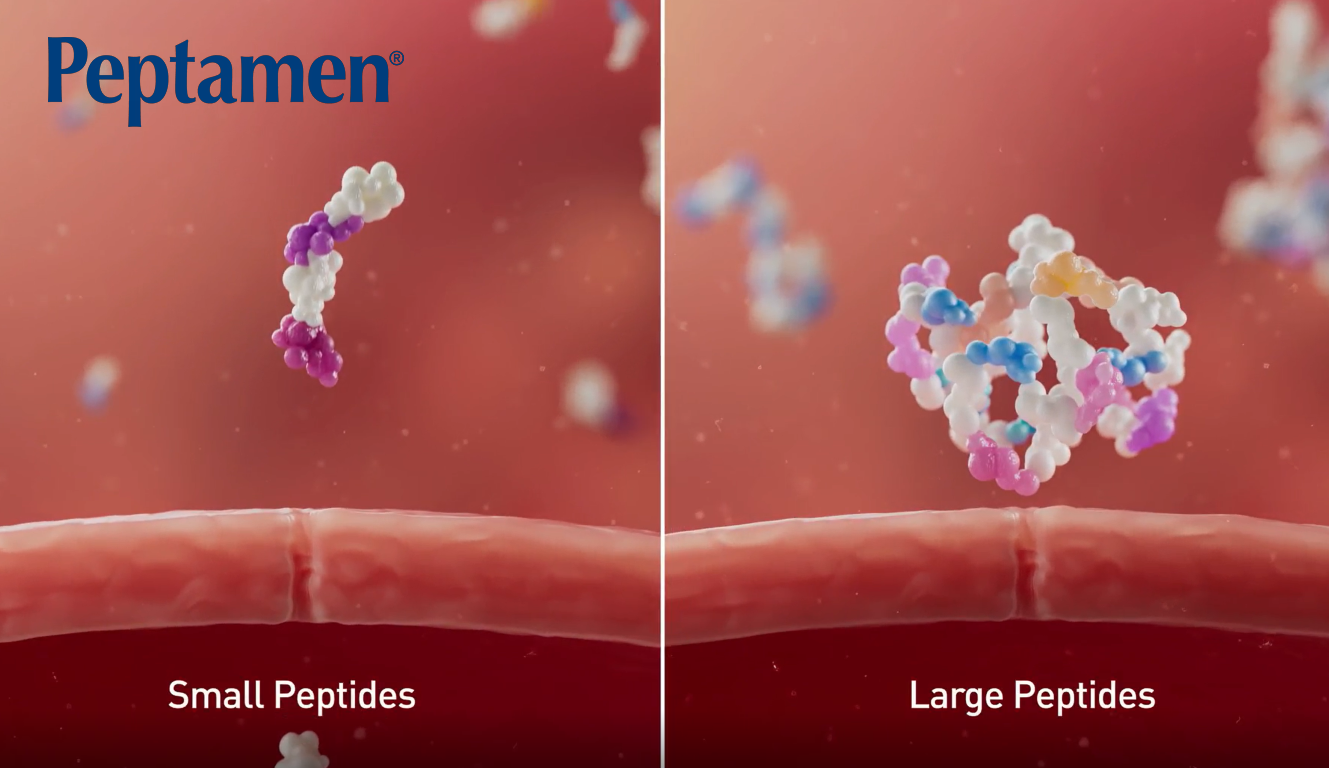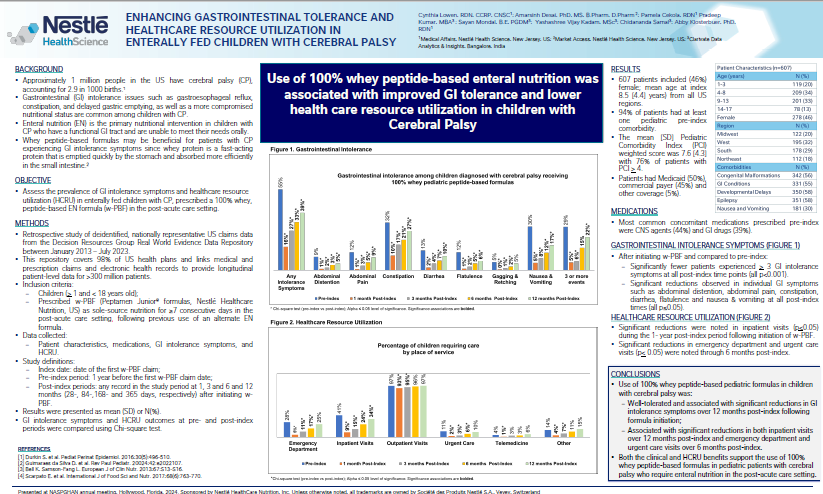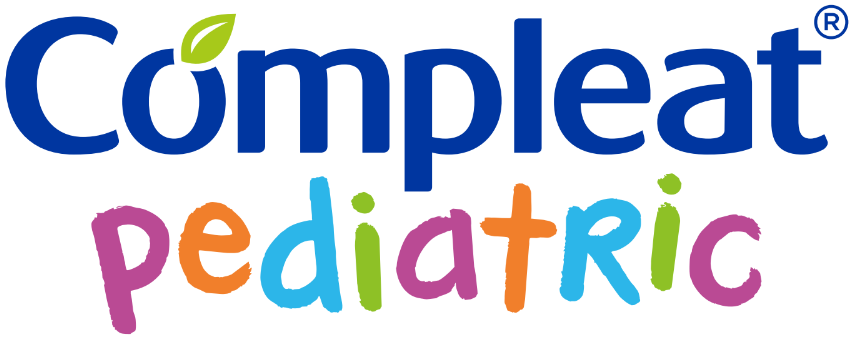
In children diagnosed with congenital, developmental or GI conditions, COMPLEAT® PEDIATRIC Peptide 1.5 formula made with fruit and vegetable ingredients was found to be well tolerated.
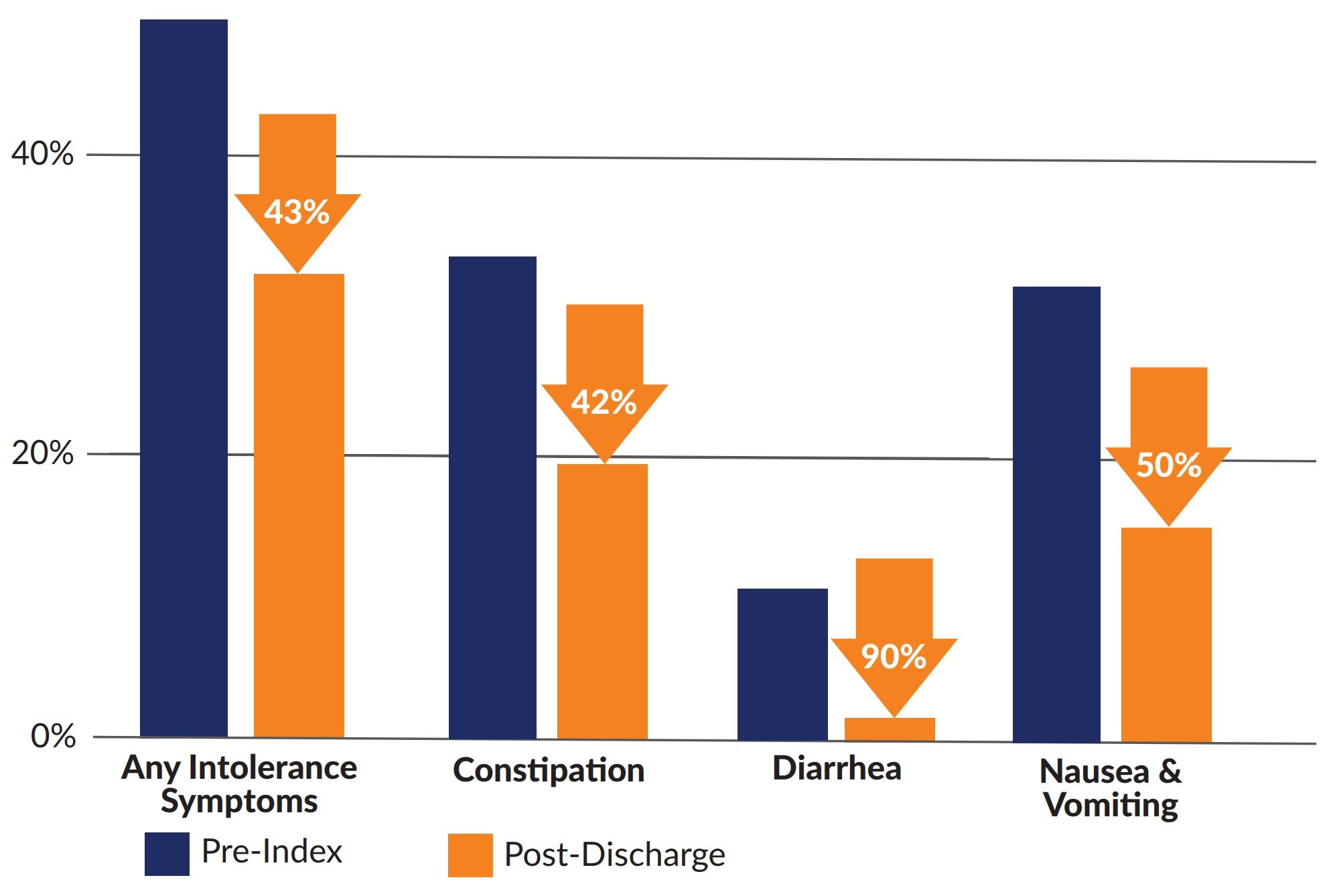
In a retrospective study of 91 children in post-acute care diagnosed with congenital conditions, developmental delays or GI conditions, children fed Compleat® Pediatric Peptide 1.5 made with fruit and vegetable ingredients showed significant reductions in GI intolerance symptoms as early as 28-days post hospital discharge.
Improvements in GI intolerance symptoms were seen at all time points up to 168-days across multiple diagnoses as compared to the 6-month period before discharge (Pre-index)
Poster Summary
Gastrointestinal Tolerance of a Peptide-Based Enteral Formula with Fruit and Vegetable Ingredients: A Retrospective Analysis of Children in Post-Acute Care
1 Medical Affairs, Nestlé Health Science, Bridgewater, New Jersey
2 Market Access, Nestlé Health Science, Bridgewater, New Jersey
3 Clarivate Data Analytics & Insights, Bangalore, India
Introduction
Enteral nutrition (EN) provides nutrition support to patients with a functional gastrointestinal (GI) tract who are unable to meet nutrition goals by mouth. Peptide-based enteral tube feeding (ETF) formulas are designed for malabsorption, impaired GI function, or enteral intolerance, and have shown improved tolerance compared with standard polymeric formulas.1-3 There is a growing body of evidence on improved GI tolerance with peptide-based ETF as well as formulas containing real food ingredients.3,4 However, evidence on peptide- and plant-based ETF also containing fruit and vegetable ingredients is scarce.
Objectives
To assess clinical outcomes related to GI intolerance in children receiving a peptide- and plant-based ETF formula containing a variety of fruit and vegetable ingredients in post-acute care.
Methods
This retrospective study of de-identified data was conducted using nationally representative US claims data obtained from the Decision Resources Group Real World Evidence Data Repository, which provides longitudinal patient-level electronic health record, as well as medical and pharmacy claims data including more than 300 million patients. Post-acute patients 1-13 years prescribed a peptide- and plant-based (hydrolyzed pea protein) formula with fruit and vegetable ingredients (Compleat® Pediatric Peptide 1.5 [PPF], Nestlé HealthCare Nutrition, US) between January 2020 and December 2022 were included. The index date was defined as the date of hospital discharge, the pre-index period was defined as six months prior to the index date, and the post-index periods were 28, 84 and 168 days after the index date. GI intolerance symptoms at pre- and post-index periods were compared.
Patient Characteristics
The study included 91 children (49% female; mean age 5.5 (SD±3) years) from all US regions. The most common pre-index comorbidities were congenital conditions (73%), developmental delays (60%), and GI conditions (57%). Among 89 patients (98%) with at least one comorbidity, the mean (SD) pediatric comorbidity index (PCI) score was 7.4 (3.5).5 A large proportion of patients (n=76, 84%) had a PCI weighted score ≥4.
Results
Significantly fewer (23% vs 56%) patients experienced any GI intolerance symptoms at 28 days post-index when receiving PPF formula compared to pre-index (p<0.001). This reduction in GI intolerance symptoms was maintained at 84 days (29% vs 56%) and 168 days (32% vs 56%) post-discharge (p<0.001), see Table below. Significant reductions in individual GI intolerance symptoms of constipation, diarrhea, nausea and vomiting were also significantly reduced across all post-index time periods (p<0.05).
Conclusion
Children fed a peptide- and plant-based enteral formula containing fruit and vegetable ingredients in a post-acute care setting showed significant reductions in GI intolerance symptoms up to 168 days post hospital discharge. Improved GI intolerance supports the use of PPF in children who would benefit from a peptide-based formula while also realizing the benefits of fruit and vegetable ingredients.
GI Intolerance Among Post-Acute Care Children Receiving a Peptide- and Plant-Based Formula

Study funded by Nestlé Health Science.
References:
1. Nutr Clin Pract. 2023 Apr;38(2):318-328.
2. JPEN J Parenter Enteral Nutr. 2021;45(8):1729-1735.
3. JPEN J Parenter Enteral Nutr. 2022;46(3):626-634.
4. Journal of Food and Nutritional Sciences. 2021;31(1):18-33.
5. Am J Epidemiol. 2021 May 4;190(5):918-927.
To request samples and find out more information contact your Nestlé Health Science representative, call 1-800-422-ASK2 (2752), or visit www.NestleMedicalHub.com/brands/compleat.
Helpful Links:
Summary prepared by Nestlé Health Science. Download PDF of Summary
Unless otherwise indicated, all trademarks are owned by Société des Produits Nestlé S.A., Vevey, Switzerland. ©2025 Nestlé. All rights reserved. Bridgewater, NJ 08807 U.S.A











